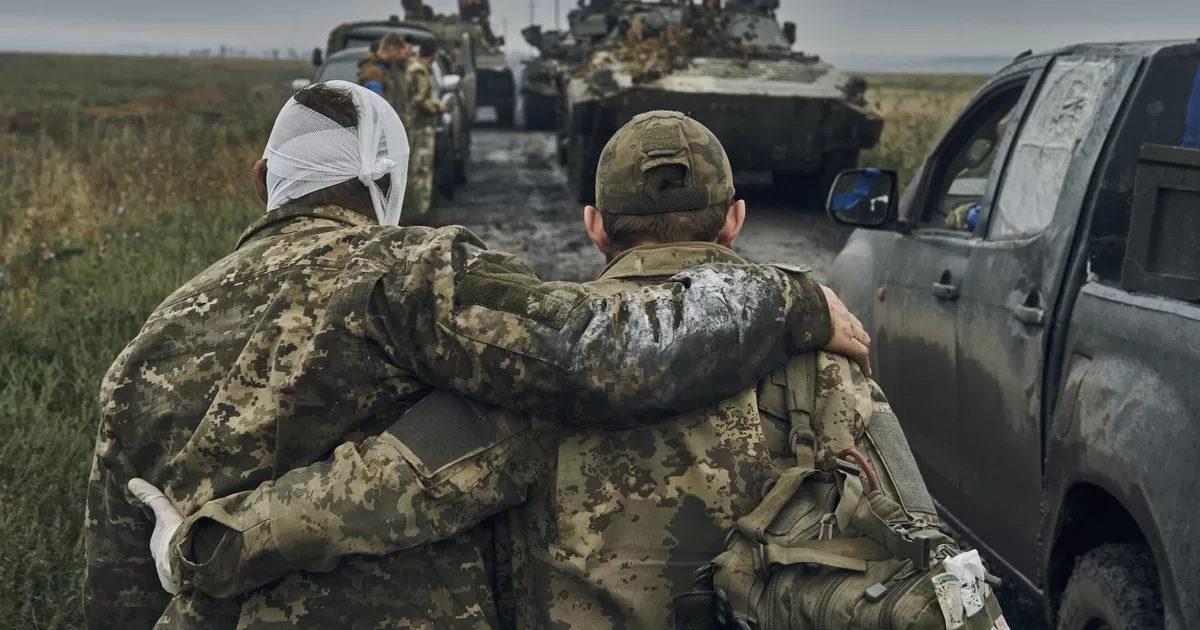Lukashenko, an ally of the ruler of Russia, Vladimir Putin, held an extraordinary meeting with officials of his government in the Belarusian capital, Minsk, according to several European media outlets.
“We must be as prepared as possible to neutralize risks and threats,” he said in statements reported by the state news agency BelTA.
“There are reasons to worry” about a third world war, he added.
Russia’s invasion of Ukraine, which turns two on February 24, and the sustained response from Europe, the United States and allies are raising fears that a broader conflict will spread beyond Ukraine’s borders.
In fact, this is the worst confrontation that Europe has seen since the Second World War (1939-1945), with the added danger of the possible use of nuclear weapons.
Belarus, a close and firm ally of Russia, was even a springboard for Russian forces to launch the invasion of Ukraine in February 2022.
Russia has even transferred tactical nuclear weapons to Belarus, where the mercenaries of the Wagner Group were also welcomed after their departure from Russian soil.
Belarus, which has to a lesser extent advocated a ceasefire in Urania, is conducting joint military exercises with Russia and claims that training with the Wagner Group mercenaries has “given results,” Lukashenko said.
I’LL TAKE
Meanwhile, NATO is carrying out its largest military exercise in Europe since the 1990s, called Operation Steadfast Defender, involving around 90,000 soldiers.
Referring to the exercises, Lukashenko said Minsk’s intelligence agencies “keep their finger on the pulse,” stating that approximately 32,000 troops from NATO members were deployed “in the vicinity of Belarus and Russia.”
“I would like to characterize the current phase of the confrontation between East and West as follows: masks have been completely removed,” Lukashenko commented.
“We have to recognize the seriousness of the situation,” he continued.
More weapons
Two new divisions of S-400 anti-aircraft systems are now in service in Belarus, Lukashenko said, referring to the mobile surface-to-air missile systems that are considered the rough Russian equivalent of the United States’ Patriot air defenses. Two other divisions are equipped with Iskander-M missile systems, he noted.
Last month, Belarus and Russia signed new agreements that Putin said show a “genuine alliance and strategic partnership between Russia and Belarus.”
On the other hand, the president of Ukraine, Volodymyr Zelensky, insists on helping his country with more weapons.
Indeed, Ukraine managed to partially stop Russia’s invasion “thanks to military aid,” declared the president of the European Union, Ursula von der Leyen.
International military aid, from the United States, Europe and other countries, totals more than 344 billion dollars, with the European Union in the lead and about 90 billion.
The United States has contributed some 73 billion in weapons to date, according to data from the State Department.
Today, each of the European countries in solidarity, or concerned that the war is expanding and affecting them, analyzes how to continue helping without harming their particular interests, including the economy.
On the other hand, the United States is still debating the future of the proposal of 60 billion in military, humanitarian and financial aid, which is stalled in the high echelons of the national Congress.
More sanctions
The European Union proposes adding sanctions against Russia, within the framework of the second anniversary of the invasion of Ukraine.
However, this time Hungary will not block the new sanctions package, as anticipated by the Hungarian Minister of Foreign Affairs, Peter Szijarto.
“Hungary will not block the sanctions package against Russia, because at the preparation stage it was possible to eliminate all points that conflict with Hungarian interests,” said the head of Hungarian diplomacy.
The senior Hungarian official also noted that the anniversary of the invasion “should be an occasion” to talk about a ceasefire and peace talks.
Precedents
In January, the European Union presented the idea of implementing the 13th package of sanctions against Russia.
The member countries of the European Union previously tried to agree on new measures against Russia, but it did not work due to the Hungarian veto, which, according to the British newspaper Financial Timesdid not want Chinese companies to be included on sanctions lists.
We will soon know what will be part of the new sanctions package and how other countries, the United States, Canada, Japan and Australia among them, will respond with more sanctions of their own or not to the new European measures.

